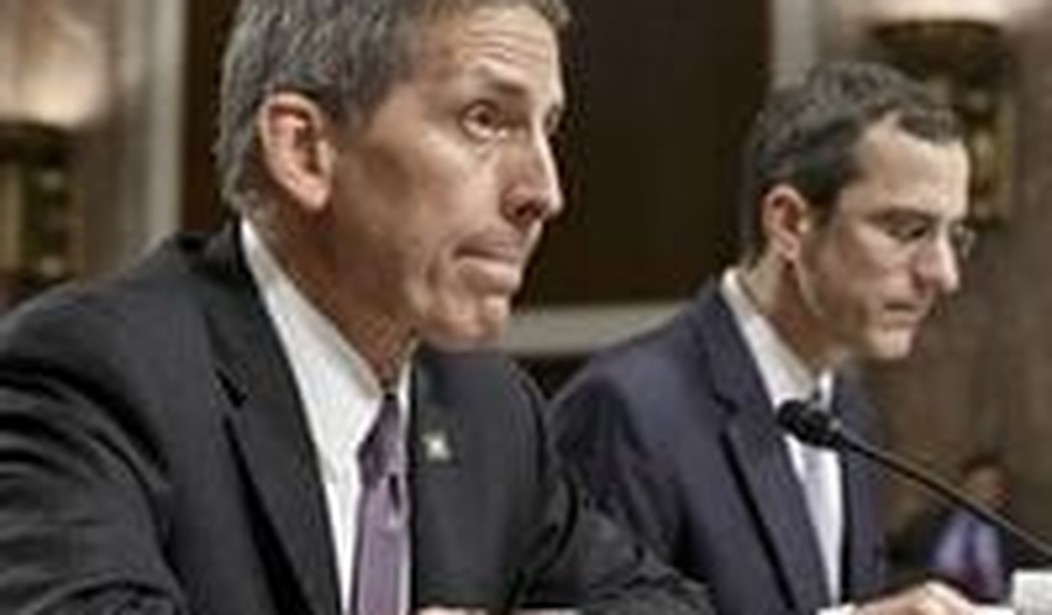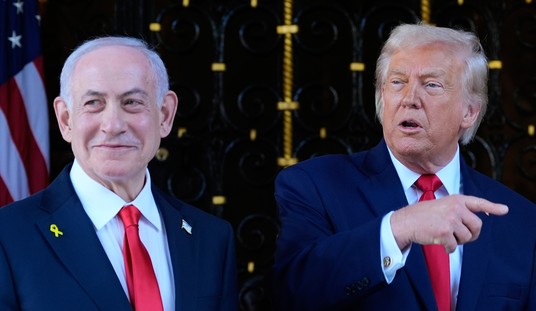WASHINGTON – The short-term leader of the troubled Department of Veterans Affairs offered an apology to former service members on Wednesday for the poor level of care many have received at the agency’s medical facilities.
Acting Veterans Affairs Secretary Sloan Gibson acknowledged to the Senate Veterans’ Affairs Committee that the healthcare system has been plagued by “unacceptable, systemic problems and cultural issues” resulting in too-long waiting periods for some who take advantage of the facilities.
“That breach of trust — which involved inaccurate reporting of patient wait times for appointments – is irresponsible, indefensible, and unacceptable to the department,” Gibson said. “We apologize to our veterans, their families and loved ones, members of Congress, Veterans Service Organizations and to the American people.”
Gibson asserted that the VA “can and must” solve the myriad problems within the system “as we work to earn back the trust of veterans.”
The quality of medical service provided by the VA has come under heavy criticism in recent weeks in wake of an inspector general’s report that unearthed evidence showing that 40 patients died waiting for care at a Phoenix facility where employees kept a secret list of patients who faced prolonged delays in receiving necessary treatment. Investigators theorized those VA workers hid those wait times in hopes of enhancing the perception of the facility’s performance.
Similar problems were subsequently uncovered at other VA medical facilities that serve almost 9 million veterans. The revelations led to the resignation of VA Secretary Eric Shinseki and Gibson’s appointment as acting secretary. President Obama has nominated Robert McDonald, the former CEO at Procter and Gamble, to assume the role full time.
An audit released in June by the Department of Veterans Affairs revealed that more than 57,000 veterans nationwide have been forced to wait 90 days or more for medical appointments at the agency’s facilities. About 64,000 more were included on the agency’s electronic waiting list for doctor appointments they requested. The VA’s stated goal is to arrange appointments within two weeks or less.
The audit scanned more than 730 VA hospitals and clinics and determined that supervisors were encouraging clerks to falsify records in 13 percent of cases.
The Veterans Health Administration operates the nation’s largest integrated healthcare delivery system, managing 150 medical centers, 820 community-based outpatient clinics, 300 Vet Centers, 135 community living centers, 104 domiciliary rehabilitation treatment programs and 70 mobile Vet Centers. The agency schedules about 236,000 healthcare appointments every day — approximately 85 per year.
More than 300,000 workers at various levels offer services to almost 6.5 million veterans and other beneficiaries annually.
Gibson told the panel the department needs about $17.6 billion in additional revenue to address requested medical services through the end of the 2017 fiscal year. The funding would go toward clinical staff, space, information technology and the processing of veterans’ benefits.
“We understand the seriousness of the problems we face,” Gibson said. “We own them. We are taking decisive action to begin to resolve them. We can turn these challenges into the greatest opportunity for improvement in the history of the department.”
Gibson said the department already has taken steps to address the system’s failures. Veterans Health Administration facilities are extending clinic hours, recruiting physicians to fill existing vacancies and dispatching mobile medical units. The department also is expanding its use of private-sector care, making more than 543,000 referrals — 91,000 more than in the comparable period a year ago.
The department, Gibson said, has contacted more than 160,000 veterans to get them off waiting lists and into clinics and is moving rapidly to update the existing scheduling program while simultaneously moving to purchase a state-of-the-art system. An audit of scheduling practices throughout the Veterans Health Administration has been ordered.
Medical center directors will be conducting monthly personal inspections of their facilities to assess the state of scheduling practices and identify obstacles to timely care. More than 1,100 inspections thus far have been conducted.
Sen. Richard Burr (R-N.C.), the committee’s ranking member, commended Gibson for taking steps to shore up the system but he added that the events represent “a horrendous blemish on VA’s reputation and much more work will be needed to repair the damage.”
Burr attributed the harm to “systemic problems and the corrosive culture that has been identified and substantiated by several independent sources.” But he further noted that the needed changes “will not happen overnight” and continued oversight is necessary to ensure the changes occur and prove to be effective.
“I want to be crystal clear — the culture that has developed at VA and the lack of management and accountability is simply reprehensible and it will no longer be tolerated,” Burr said.
Sen. Bernie Sanders (I-Vt.), the committee chairman, credited the VA with performing “a good job at providing quality healthcare to veterans – once they get into the system. In fact, they have been doing some cutting-edge work.”
But, Sanders said, “The simple reality is that the problems they face are staggering.”
Sanders said he continues to have major concerns regarding the inability of veterans in various locations across this country to access care in a reasonable period of time. An audit shows 46,236 veterans are on lists waiting to be scheduled for medical appointments and that 8,126 of them have waited over 120 days to receive an appointment. More than 636,000 veterans have an appointment that is more than 30 days from the date that the appointment was initially requested or from the date that was desired by the patient.
“This is unacceptable,” Sanders said. “VA must do much more to improve access to the VA Health Care System. We have a moral obligation to provide veterans with the timely access to the health care they need.”
But Sanders added that “the simple truth of the matter is that the VA needs more doctors, more nurses, more mental health providers and, in certain parts of the country, more space for a growing patient population. VA’s ability to provide timely care both now and in the future must be strengthened by building capacity within the system. This is done by ensuring VA has the resources, including physical space and the health care providers and support staff necessary to provide such care.”
The chairman also said he is “deeply troubled” by reports that detail deliberate retaliation against VA employees who exposed flaws within the system.
“I will not accept honest whistleblowers – who want to improve the system – being silenced or having their concerns ignored,” he said.
Sanders also took the opportunity to announce that progress is being made in a House-Senate conference committee formed to produce legislation to address the VA situation.
“I am pleased that, in reality, there are more similarities than differences between the House and Senate bills,” Sanders said. “We have been making significant progress in the last month and I believe that we can reach an agreement very soon. Millions of veterans are counting on us to do so. We can’t afford to make them wait any longer for the care and services they have earned and deserve.”









Join the conversation as a VIP Member